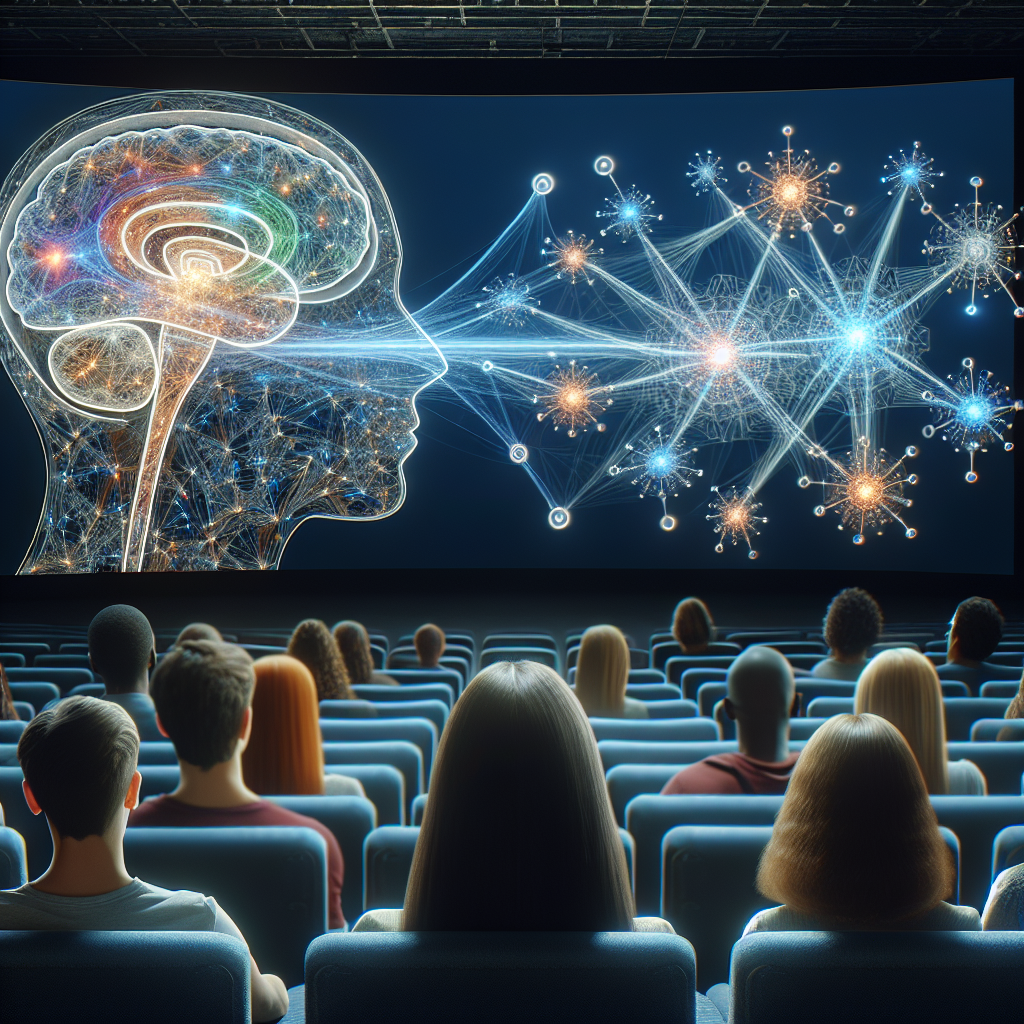The Impact of AI on Audience Engagement in Entertainment
Artificial Intelligence (AI) has rapidly transformed various industries, including the entertainment sector. From personalized recommendations on streaming platforms to interactive chatbots at live events, AI has revolutionized the way audiences engage with entertainment content. In this article, we will explore the impact of AI on audience engagement in the entertainment industry and discuss how it is shaping the future of entertainment.
1. Personalized Recommendations
One of the most significant impacts of AI on audience engagement in entertainment is the ability to provide personalized recommendations. Streaming platforms like Netflix and Amazon Prime use AI algorithms to analyze user behavior and preferences, allowing them to recommend content that is tailored to individual tastes. This not only enhances the viewer experience but also increases engagement and retention rates.
AI algorithms can analyze a user’s viewing history, ratings, and interactions to predict what content they are likely to enjoy. By understanding the viewer’s preferences, streaming platforms can recommend movies, TV shows, and music that are relevant and appealing to them. This level of personalization creates a more immersive and satisfying entertainment experience, leading to increased engagement and loyalty from audiences.
2. Content Creation
AI technology is also being used to create original content in the entertainment industry. For example, AI algorithms can analyze trends and audience preferences to generate ideas for new TV shows, movies, or music. This data-driven approach to content creation can help producers and creators make informed decisions about what type of content will resonate with audiences, leading to higher engagement and success rates.
AI can also be used to enhance the creative process by providing tools and resources for artists and creators. For example, AI-powered editing software can streamline the post-production process, making it faster and more efficient. Additionally, AI can help artists analyze audience feedback and trends to improve their work and create content that is more engaging and relevant to their audience.
3. Interactive Experiences
AI technology has enabled the creation of interactive experiences that engage audiences in new and exciting ways. For example, chatbots powered by AI can interact with fans during live events, allowing them to ask questions, participate in polls, and receive personalized content recommendations. This level of interactivity enhances the viewer experience and creates a stronger connection between audiences and the entertainment content.
AI-powered virtual assistants, such as Amazon’s Alexa or Apple’s Siri, have also transformed the way audiences engage with entertainment content. These virtual assistants can provide information about movies, TV shows, and music, recommend content based on user preferences, and even control smart home devices to create a more immersive entertainment experience.
4. Marketing and Promotion
AI technology is also being used to improve marketing and promotion strategies in the entertainment industry. AI algorithms can analyze audience data and trends to target specific demographics with personalized advertisements and promotions. This targeted approach increases engagement and conversion rates, leading to higher ROI for entertainment companies.
AI can also be used to optimize marketing campaigns by analyzing audience feedback and engagement metrics in real-time. This data-driven approach allows marketers to make informed decisions about where to allocate resources and how to tailor their messaging to maximize audience engagement.
FAQs
Q: How does AI impact audience engagement in the entertainment industry?
A: AI impacts audience engagement in the entertainment industry by providing personalized recommendations, creating original content, enhancing interactive experiences, and improving marketing and promotion strategies.
Q: How does AI personalize recommendations for audiences?
A: AI algorithms analyze user behavior and preferences to recommend content that is tailored to individual tastes. This level of personalization creates a more immersive and satisfying entertainment experience, leading to increased engagement and loyalty from audiences.
Q: How is AI being used to create original content in the entertainment industry?
A: AI algorithms can analyze trends and audience preferences to generate ideas for new TV shows, movies, or music. This data-driven approach to content creation can help producers and creators make informed decisions about what type of content will resonate with audiences, leading to higher engagement and success rates.
Q: How does AI enhance interactive experiences in the entertainment industry?
A: AI technology enables the creation of interactive experiences that engage audiences in new and exciting ways. Chatbots powered by AI can interact with fans during live events, virtual assistants can provide information about entertainment content, and interactive platforms can allow audiences to participate in polls and receive personalized recommendations.
Q: How does AI improve marketing and promotion strategies in the entertainment industry?
A: AI algorithms analyze audience data and trends to target specific demographics with personalized advertisements and promotions. This targeted approach increases engagement and conversion rates, leading to higher ROI for entertainment companies.
In conclusion, AI technology has had a profound impact on audience engagement in the entertainment industry. From personalized recommendations to interactive experiences, AI has transformed the way audiences interact with entertainment content. As AI continues to evolve, we can expect to see even more innovative and engaging experiences that will shape the future of entertainment for years to come.

